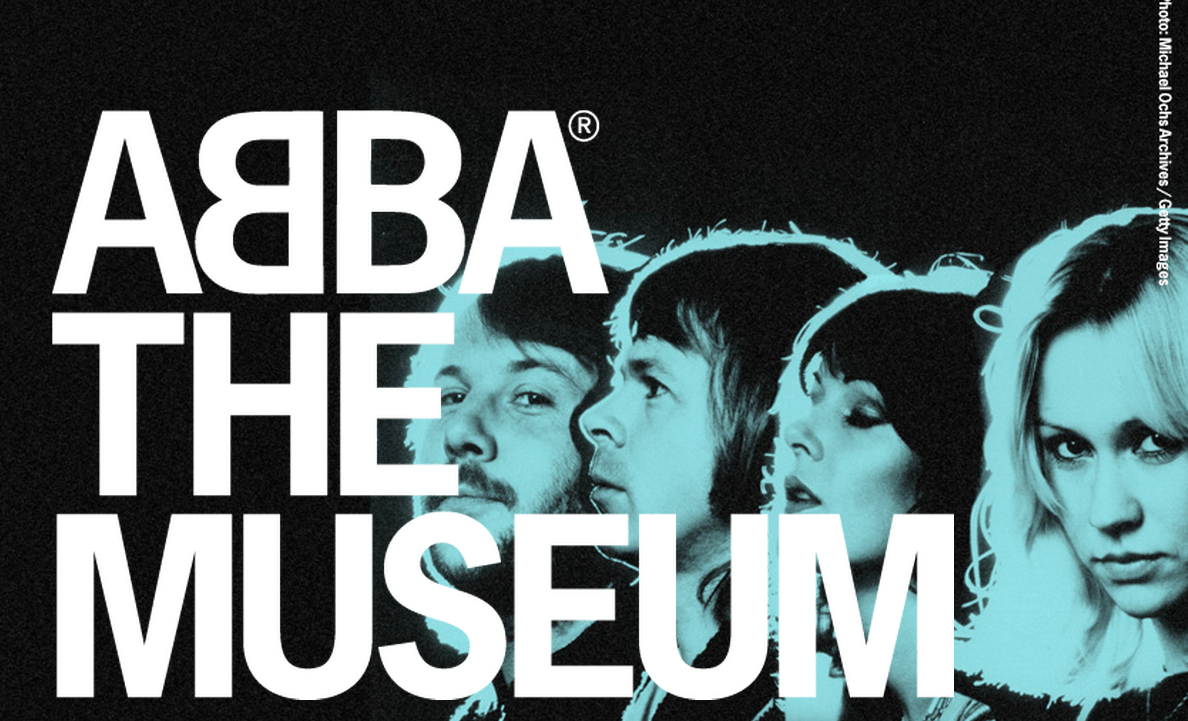New ABBA museum in Stockholm will bring in money, money, money when it opens in May 2013

Skift Take
A boxy, four-storey structure of Scandinavian pine is rising out of the snow on Stockholm's Djurgården Island, sandwiched between the city's largest funfair and a restored 17th-century warship.
From its opening day, on 7 May, Abba The Museum, the city's first monument to the Swedish supergroup, is expected to lure hundreds of thousands of tourists a year to belt out versions of hits such as Super Trouper, Dancing Queen and Waterloo, alongside holographic images of the group in all their spangly 70s glory.
"Obviously, from a Swedish state point of view it should have already been around for many years, because it's one of the most famous Swedish brands ever," said Mattias Hansson, the museum's managing director, as he showed off the site before Christmas. "We know from the tourism office in Stockholm that each and every year they receive thousands of questions from tourists about where to go to see something about Abba, and for years they have been forced to say, 'nowhere'."
"We weren't entirely sure if there was going to be one, whether we wanted one – to become artefacts and relics while we are still alive," said Abba's Björn Ulvaeus, explaining the group's previous reservations when he announced his involvement back in October. But, he said: "I realised someone had to take the full responsibility and it gradually dawned on me that I was the one."
He is now the project's main backer, having taken a majority financial stake in December by buying shares from the three main investors – Universal Music, Live Nation, and Parks & Resorts Scandinavia. "He's taken a much bigger stake in the company, and that means also intellectually, when it comes to putting his creative mind and time into this," Hansson said.
Ulvaeus is by far the most entrepreneurial of the four members. He had completed a degree in law and business before he launched his pop career and he has a portfolio of property ventures. It was Ulvaeus who gave his backing in 1999 to Mamma Mia!, the London stage musical. He then worked as a producer on the 2008 film version, starring Meryl Streep, for which Benny Andersson, Ulvaeus's songwriting partner, wrote some new songs.
Hansson says Ulvaeus's involvement has made all the difference. "For certain, Björn Ulvaeus is the brightest creative mind I've ever been in the same room with." The two are trying to make the museum as interactive as possible, drawing on Hansson's experience as an internet entrepreneur. Every visitor will receive an Abba ID with their ticket, which will generate a page on the museum's website when they enter the building. Everything they do inside will be recorded, from singing on the holographic stage to entering a booth where Abba costumes will be projected on to them. Later, they will be able to share photos and videos of their experiences on Facebook and other social media.
Hansson said this all justifies the price of the tickets which, at 195 Swedish kronor (£18.50), aren't cheap. "Given the experience we will provide, it's a pretty fair price." It's also a sign of how the business model of Universal Music, which holds the rights to Abba, is evolving. Abba The Museum has done a deal to "integrate and extend the museum experience" into Spotify, the Swedish music-streaming service, and has tied up with a list of corporate sponsors.
Mamma Mia! has generated revenues of well over $2bn – it is the longest-running musical ever on both Broadway and in London's West End, and the film is the highest-grossing musical ever, generating well over $600m at the box office on a budget of $52m. That success has limited the hit that Abba and Universal might otherwise have taken during a decade when music piracy flourished.
But according to Hansson, it wasn't the prospect of additional royalties that finally won the band round to the museum project; it was Ulvaeus and Andersson's decision last year to insist that the museum be part of a wider Swedish Music Hall of Fame, with Abba sharing the glory (but less than 30% of the floorspace) with 400 other acts.
The band agreed to a 2006 plan to build an Abba museum in Stockholm, which failed when its main backer, Iceland's Kaupthing Bank, collapsed during the 2008 financial crisis. This time around, though, they're all more involved. Even Anni-Frid Lyngstad, who these days prefers a quiet life in Switzerland with her husband, heir to the WH Smith chain – has helped out. According to Hansson, she has "cleaned out her closet", bequeathing old costumes and memorabilia. Also on show will be the costumes the band wore when they won the Eurovision song contest in 1974. "In some way, all four of them will give each and every visitor an extraordinary take on the history of Abba," Hansson said. "They've all been filmed and interviewed for the exhibition."
The interviews are being used by Catherine Johnson, the British playwright who wrote Mamma Mia!, to make an audio guide which will tell the band's story from the 1960s, when each member was a musical success in their own right, through their marriages and Eurovision victory, to their divorces and the band's breakup in 1983.
"There's a built-in Romeo and Juliet thing here, with four individuals who all had their own careers, then became lovers and then won the Eurovision song contest," said Hansson. "It's a 10-year saga which you can follow from the first love affairs to the bitter end."
Ulvaeus has been keen to downplay the glamour and emphasise the more melancholy side to the band, the darker aspects of the lyrics, the frequent use of plaintive minor keys and the two divorces. However, that hasn't stopped Hansson trying to market the museum with the slogan "Walk In, Dance Out!"
Hansson said he did not know whether any of them would come to the museum opening. "I will be wondering about that until 10 minutes before the opening ceremony, because they don't usually do things together… But I cross my fingers."
This article originally appeared on guardian.co.uk
![]()




